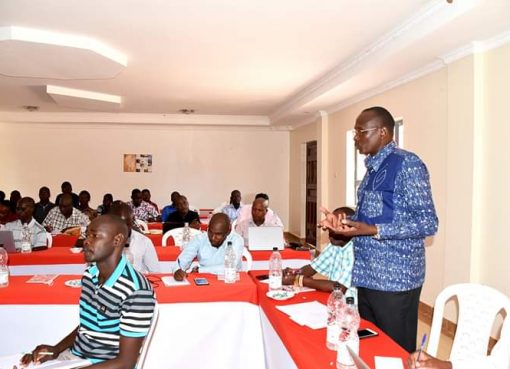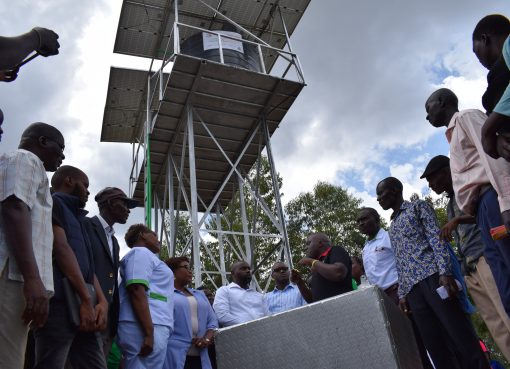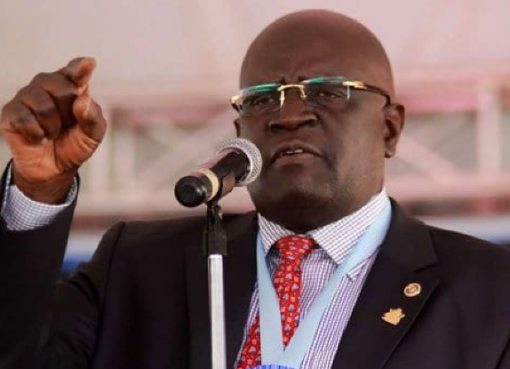The Ministry of Health, in partnership with AstraZeneca, has launched the Cancer Care Africa Programme to improve Cancer Care in the Country by improving access and outcomes across the patient care pathways, from diagnosis to treatment and beyond.
Cancer has become a major public health concern in Kenya and across Africa, with the latest statistics from the World Health Organisation showing that there were 44,726 cancer cases and 29,317 cancer deaths in Kenya in the year 2022.
The figure is set against a regional context that estimates a total of 2.1 million new cases and 1.4 million deaths annually by 2040 across Africa.
The Cabinet Secretary for Health, Susan Nakhumicha, said that the launch of the Cancer Care Africa programme in the country signifies a step towards improving cancer care for all.
Nakhumicha made the remarks in a speech read on her behalf by the National Cancer Institute of Kenya, Chief Executive Officer Dr. Elias Melly, during the launch of the Cancer Care Africa Programme held at the Nairobi Hotel.
She said that the collaborative initiative with other stakeholders has the potential to significantly improve access to diagnosis, treatment, and care, saving lives and improving the well-being of the country.
The CS noted that a few decades ago, cancer and other non-communicable diseases were not a major concern for the country, while adding that preoccupation was largely with infectious diseases such as HIV, malaria, and tuberculosis, among others.
“Today, however, cancer has emerged as a critical health issue across Africa, exerting a disproportionately huge burden on families and on our healthcare system. Today, cancer is ranked the third leading cause of death in Kenya, behind infectious diseases and cardiovascular diseases, and the fifth in Africa,” she said.
The CS said what most Kenyans dread is a cancer diagnosis to a family member, as such a diagnosis may not only portend an early loss of a loved one, but a catastrophic financial burden for the entire household.
“Despite its growing prevalence and mortality, quality cancer care remains a challenge for many; this has a more severe impact on underserved populations, exacerbating existing health inequalities,” CS said.
She said that the programme will play a key role in cancer care and management by challenging traditional thinking and advocating for policy changes in cancer care to improve outcomes for all individuals affected by the disease, regardless of their demographic, geographic, or socio-economic status.
“The Accelerating Change for Cancer Care programme is key in supporting health systems to embrace innovative health technologies, which have the potential to make cancer screening more accessible, particularly in remote and underserved communities in Africa,” she stated.
She announced that the ministry and partners envision a country with sustainable and equitable cancer care infrastructure that bridges the gap from diagnosis to treatment by leveraging local initiatives in Africa to redefine cancer care and build healthcare capacity for the delivery of quality and affordable care for all.
“The partnership with AstraZeneca brings together cancer experts, researchers, patient voices, health tech firms, government officials, and policymakers, aiming to develop sustainable cancer care ecosystems that can withstand the burden of future pressures,” she revealed.
CS acknowledges that partnerships with AstraZeneca Cancer Care Africa, will amplify cancer prevention and control and co-create a comprehensive and coordinated approach to cancer care in the country.
Additionally, she said that this collaborative initiative has the potential to significantly improve access to diagnosis, treatment, and care, ultimately saving lives and improving the well-being of Kenyans impacted by this disease, as well as their families and communities.
She said the government under the Ministry of Health has prioritised and made cancer diagnosis, care, and treatment affordable for families, noting that with the establishment of the Social Health Authority (SHA), Kenyans will get even greater relief on spending as SHA will take care of the huge costs of cancer treatment for all.
In his remarks, Dave Fredrickson, Executive Vice-President, Oncology Business Unit, at AstraZeneca, said that the Cancer Care Africa programme will support early detection, increase timely diagnosis, and improve access to treatment options for patients in Kenya.
“With an increasing number of patients being diagnosed with cancer in Kenya and across Africa in the coming decades, joint action to improve patient outcomes and safeguard health care systems for the future has never been more important,” he said.
AstraZeneca is a global, science-led bio-pharmaceutical company that focuses on the discovery, development, and commercialization of prescription medicines in Oncology, Rare Diseases and Bio pharmaceuticals.
By Sharon Atieno and Bernadette Khaduli





